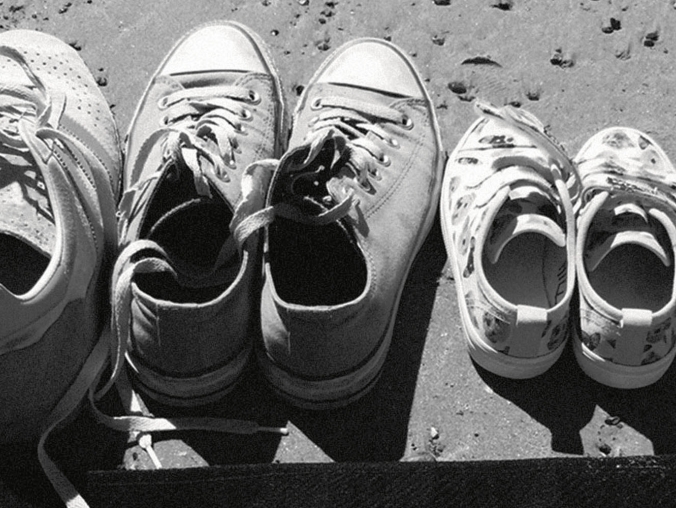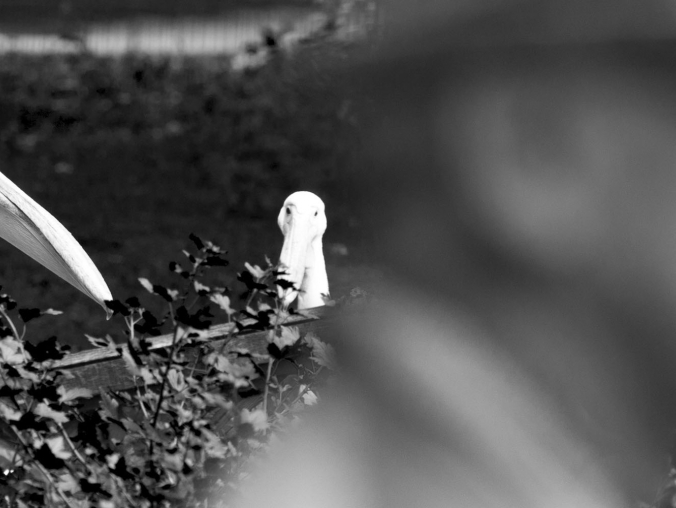
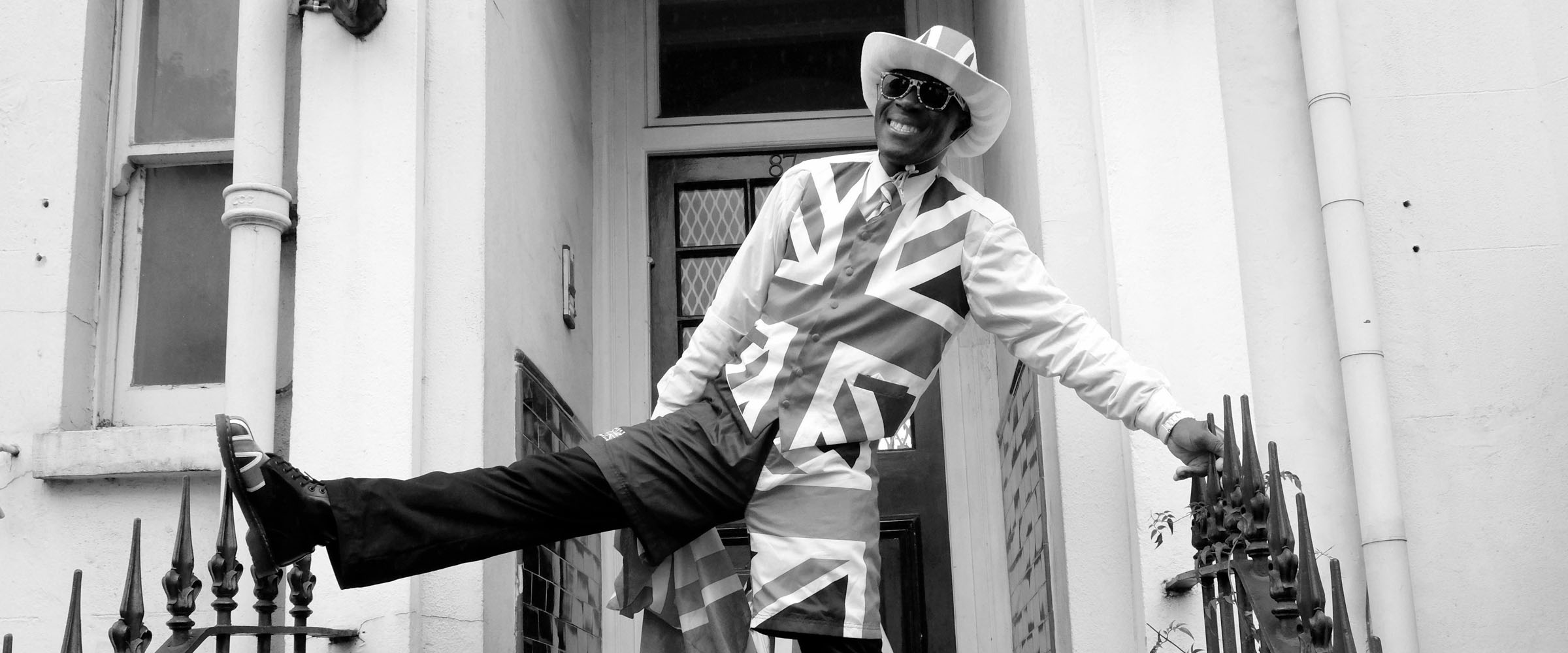
Helping the organisations that matter to you
Your nominations helped us donate £350,000 to not-for-profit organisations across the UK in 2018
We received a record number of nominations from members in 2018, meaning we were able to donate more to the not-for-profit organisations doing great work in your communities.
In line with our aim to support people with chronic or long-term conditions – from homelessness and financial hardship to illness and disability – the Royal London Foundation offers individual grants of £5,000 to support the work of not-for-profit organisations and community groups nominated by members. The grants are unrestricted and can be put towards core costs. Thanks to you, we granted a total of £350,000 to 70 organisations across the UK in 2018, an incredible 89% increase on the amount we donated in 2017.
This year, we’re also making changes to the Royal London Foundation so we can offer even more support to the local groups that matter to you.
Find out about some of the great organisations we’ve granted funding to, and how they’re helping people in need, below. Please note, names have been changed to protect the identities of the people involved.
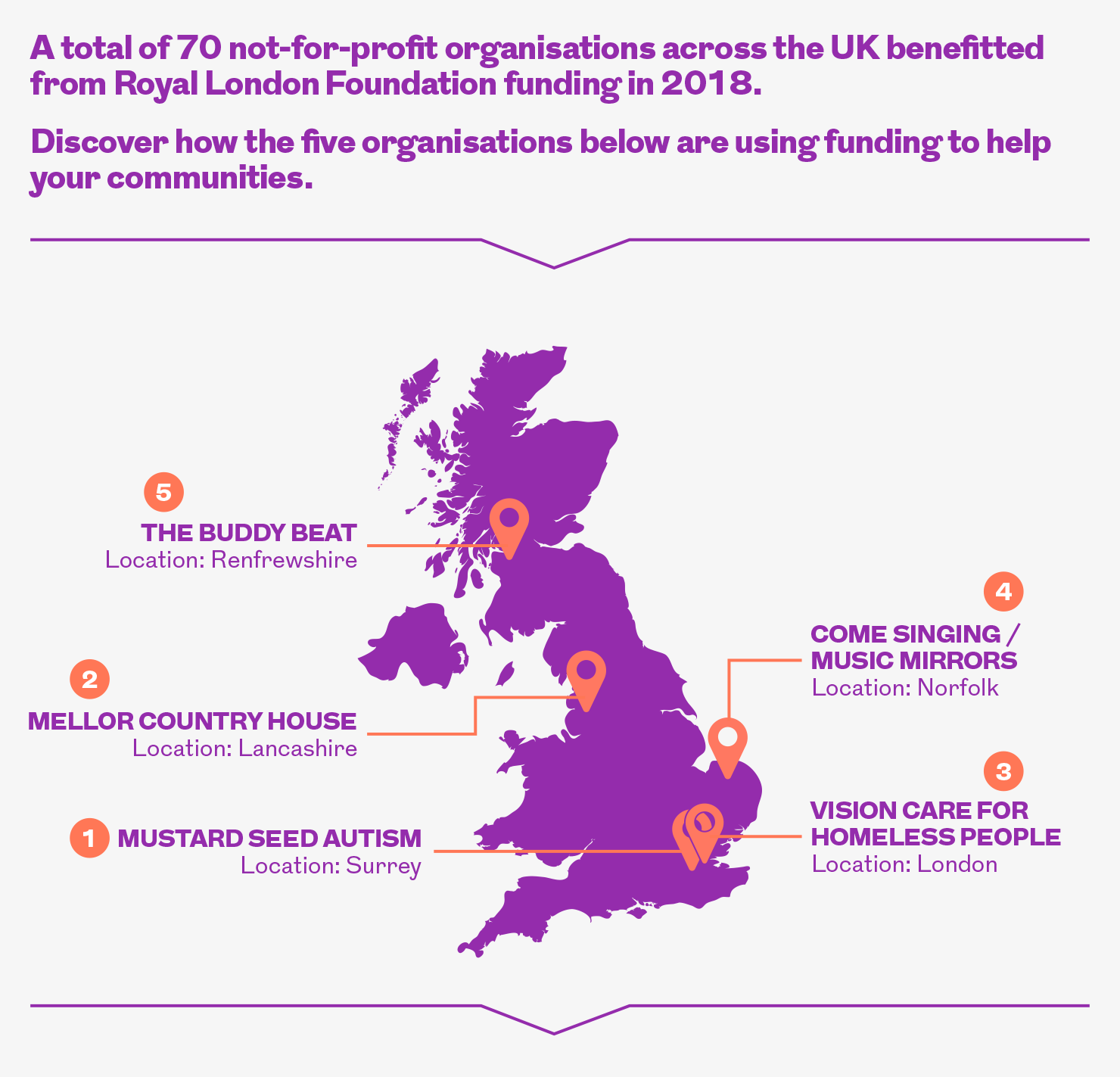


Mustard Seed is a charity that offers professional and practical support to families living with autism. With the help of trained volunteers, they work in family homes or at local venues to help children on the autistic spectrum develop physical, social, communication and emotional skills.
Tom’s story
Mustard Seed has helped Tom and his family over the past three years. He’s received a huge range of support, from occupational therapy to improve his motor skills and difficulties with sensory processing, including eating and sleeping, to anxiety management, allowing him to develop calming strategies that help him manage at school. Furthermore, Mustard Seed’s Friendship Zone has helped Tom to improve his social and emotional understanding, meaning he can better interact with other children. His parents also attended a six-week Empowering Parents Course, which boosted their confidence in understanding Tom’s needs and behaviours. Now, Tom is developing the skills he’s learnt in his daily life, improving his relationships and emotional wellbeing.
Find out more about Mustard Seed here.

Mellor Country House provides low-cost, self-catering breaks in the countryside for financially and socially disadvantaged people living in the Greater Manchester area. Run by volunteers, the house hosts between 800 and 1,000 visitors a year, including families, groups, carers and individuals, in a safe, relaxing and uplifting environment. It also offers educational services to help visitors with everything from interview techniques to social skills.
Diana’s story
Diana has been a regular visitor to Mellor Country House for over 20 years. Having had problems with alcohol, she describes the house as her ‘bolt hole’ when everything becomes too much. Diana decided to become a volunteer at the house as she wanted to give something back, so she joined a team running a kiosk at the Etihad Stadium in Manchester, selling pies and pints to raise money. As Diana used to be a barmaid, this brought back happy memories and has boosted her confidence. She’s also developed a love for gardening and vegetable growing, and has even been involved in the Tatton Park Flower Show. Diana has made many positive changes over the years, and she now has a much better quality of life.
Find out more about Mellor Country House here.

Vision Care for Homeless People (VCHP) offers eye care services to homeless and other vulnerable people. VCHP has NHS-standard opticians’ clinics in London, Brighton, Birmingham, Exeter, Leeds and Manchester, as well as a mobile service in East London. The services, which include eye tests and providing glasses, are run by optometrists who are mostly volunteers, as well as volunteer dispensing opticians and clinic assistants.
Dave’s story
Dave, a homeless man from London, had poor eyesight that was making it difficult for him to get a job. He’d been trying, but when he was given something to read at an interview, he couldn’t see it properly and became flustered. He’d also stopped using the internet to look for work because it hurt his eyes. Dave visited the VCHP clinic in Shepherd’s Bush and was delighted to receive new glasses. He eagerly went to his next appointment at the Job Centre, and soon found himself a job working full time as a kitchen porter in Chiswick.
Find out more about VCHP here.

Come Singing provides therapeutic singing and music sessions for people living with dementia, and their carers or family. Run by volunteers, Come Singing holds over 20 monthly singing sessions in care homes, day centres, hospitals, a library and independent locations. The group has also set up an initiative called Music Mirrors. Friends, family or volunteers can make Music Mirrors by cataloguing the musical memories of patients with dementia, providing comfort at times of change or anxiety and helping them to connect with the world around them.
Ruth’s story
Dementia support staff on the stroke ward of a general hospital used a Music Mirror to help a seriously ill patient, Ruth. Set up on a bedside iPad, the Music Mirror showed text that described her childhood, while links to Youtube called up her favourite songs. Both elements were important in getting through to Ruth when communication was difficult. Her daughter later said that the Music Mirror had reminded her mother of some of her greatest times of joy during her last weeks.
Find out more about Come Singing here.

The Buddy Beat is a drumming group for people with mental health conditions. Run by members, the group holds regular workshops, using music, outreach and community sessions, and performances as a medium to promote recovery, communication skills, employability and social inclusion. The Buddy Beat helps people referred by NHS mental health and local addiction services, as well as employability and older adult care services, amongst others.
Stephen’s story
After experiencing a decline in his mental health, Stephen felt incredibly lost and considered himself at the end of the line. He knew something had to change. Out of the blue, he had an unexpected drumming experience with community music specialist Dr Jane Bentley, who invited him along to The Buddy Beat. Stephen instantly left his worries at the door and found peace for the first time in many years. After months of attending sessions, Stephen found self-confidence, self-worth and friendship again. According to Stephen, The Buddy Beat not only saved his life but opened it outwards, empowering him through performance, giving him back his creativity, and leading him into volunteering and employment.
Find out more about The Buddy Beat here.
Remember, it’s your nominations that help us to support such worthy causes, so if there’s an organisation doing great work in your community, we’d love to hear from you. Nominations for 2019 will open on 1 April and close on 12 June, so please look out for the application window!
More for you
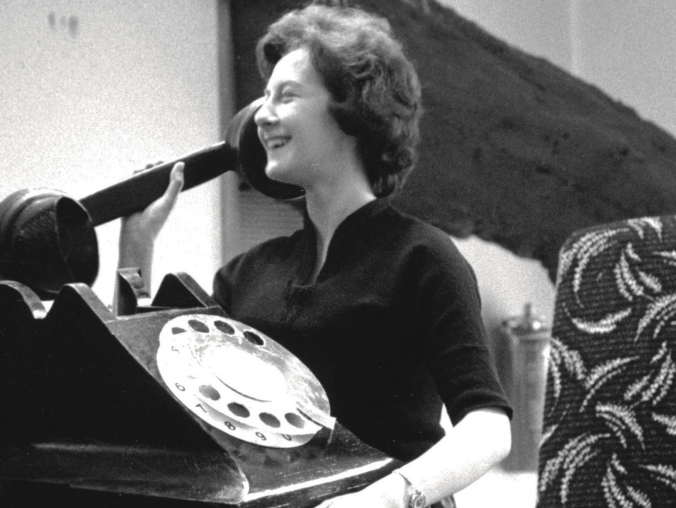
Creating more work experience opportunities for members
Our Insight into Work programme has helped lots of members and their families, and we’ve got more opportunities in store for you
MORE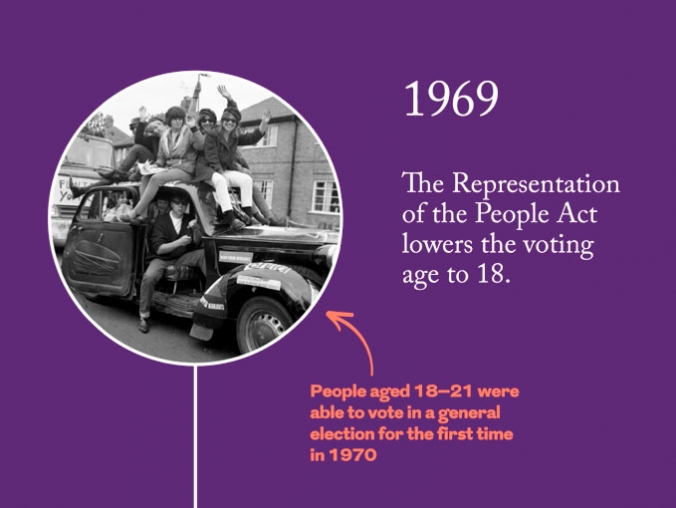
Why is voting so important?
Find out why voting is such an important part of our society and our business, and how voting at the AGM benefits you
MORE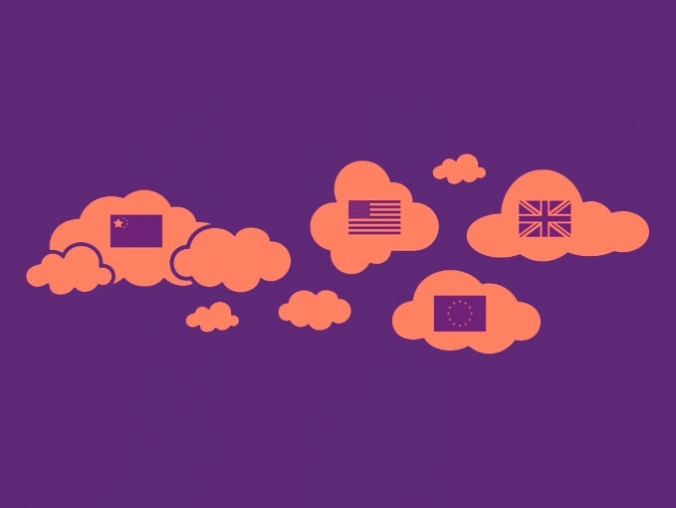
Your Q4 2018 outlook
Trevor Greetham, Head of Multi Asset Investments at Royal London, explains how global politics, rising inflation and interest rates could impact your money in Q4 2018
MORE
